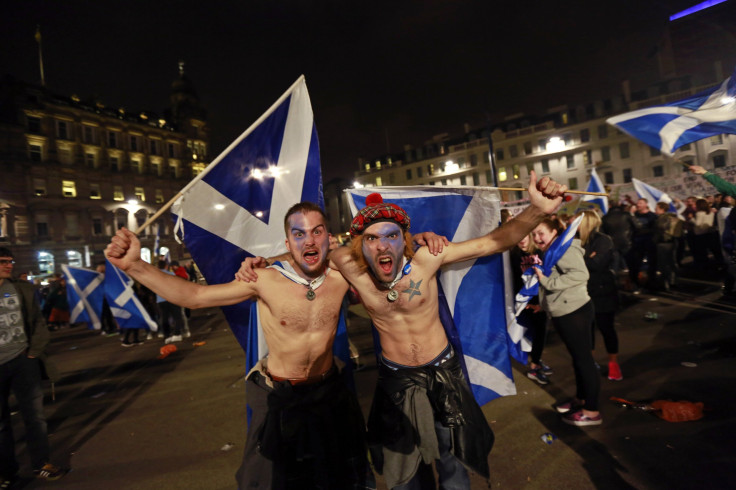Will Scotland Leave The UK? Anger As London Rejects Second Independence Vote Amid Brexit Talks

London would take political action to prevent a post-Brexit referendum for Scottish independence from the U.K., British defense minister Michael Fallon said Thursday, invoking anger among Scotland's leaders.
In an interview with the Herald newspaper, Fallon rebuffed the idea of the U.K. allowing Scotland to call a snap independence referendum much like one held in 2014 in which the majority of Scots voted to stay in the U.K. Frustration over the U.K.'s decision to leave the E.U. after a nationwide referendum last year contributed to a renewed desire among Scots to break away from London. Fallon said Prime Minister Theresa May would block any such move.
"No, forget it," Fallon said in reference to Scottish First Minister Nicola Sturgeon's suggestion earlier this week she could call a snap referendum. Fallon added that Sturgeon, who is the leader of the Scottish National Party, was "constantly asking us to respect the SNP government, but she has to respect the decision of Scotland to stay inside the U.K. in 2014 and the decision of the U.K. to leave the E.U. Respect works two ways."
Serious backpeddling from Michael Fallon on GMS on blocking #indyref2. Must have realised what a disastrous move it would be for Tories.
— Nicola Sturgeon (@NicolaSturgeon) February 2, 2017
He later suggested Sturgeon's government “forget all that stuff and get on with the day job,” on BBC radio talk show "Good Morning Scotland," but appeared to take a less confrontational approach to the argument.
The Scottish government reacted with indignation over Fallon's remarks, calling an attempt by May to block a Scottish independence referendum "a democratic outrage." Sturgeon herself called such an outcome "a disastrous move" in a comment on social media. She also retweeted a commentary by Scottish journalist Michael Gray, who said London's opposition to a second referendum was "out of fear" because "they know they'd lose."
The U.K. endorsed the last referendum for Scottish independence, which saw divisive political campaigns echoed two years later on a much larger scale when the U.K. held a national referendum over exiting the E.U. Scots voted 55 to 44 percent in 2014 to stay in the U.K., but 62 percent voted to stay in the E.U. in the 2016 referendum that saw majorities for "remain" in every council.
© Copyright IBTimes 2025. All rights reserved.






















